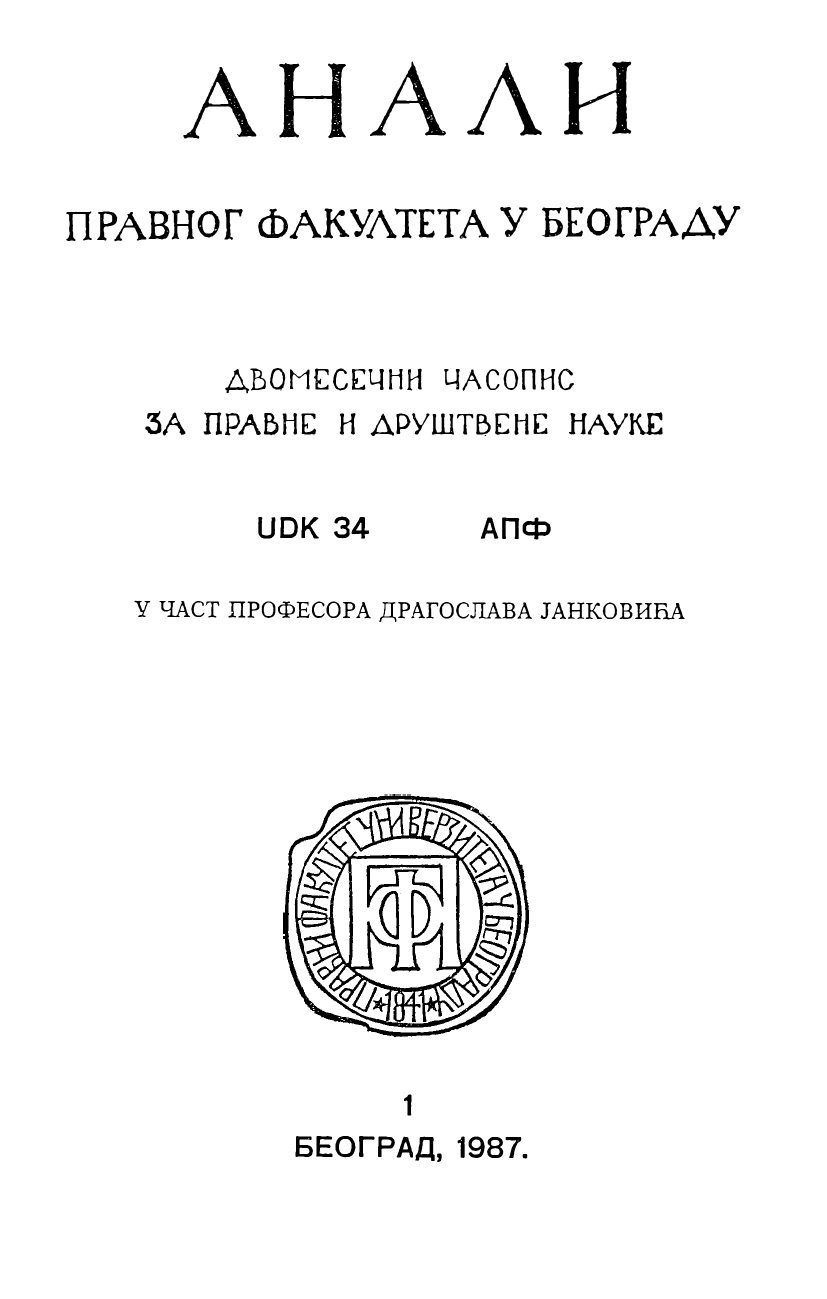РАЗЛИКЕ У САДРЖИНИ И ПРАВНОЈ ПРИРОДИ РИМСКОГ ТЕСТАМЕНТА И ТЗВ. ЛЕГАТСКОГ ТЕСТАМЕНТА СТАРОГ ГРЧКОГ ПРАВА
DIFFERENCES OF SUBSTANCE AND LEGAL NATURE OF THE ROMAN TESTAMENT AND THE SO-CALLED LEGACУ BУ TESTAMENT OF THE OLD GREEK LAW
Author(s): Sima AvramovićSubject(s): Law, Constitution, Jurisprudence, Roman law
Published by: Правни факултет Универзитета у Београду
Summary/Abstract: The central position in this work is taken by the analysis of the so-called testaments of Greek philosophers Plato, Aristotle, Teofrast, Straton, Likon and Epicurus (winch are noted down by Diogenes Laerty), which are most frequently quoted as a main argument supporting the existence in the Greek law of the institute of testament. The author shows that in all those cases this not the universal succession and nominating of heirs (in termsof the Roman heres); in most cases the de cuius even does not mention his sons in the statement of his last will, which evidently inherited him ex lege, which applies to other legal heirs too, together with the singular successors from the act of disposing of property. The attitude of compatibility between such statement of last will and the legal succession is confirmed also by the analysis of the speech of Lycius and Demosthenes (so-called testaments of Konon, Demosthenes’ father, the banker Passion), while entirely singular property character of disposal in case of these acts mortis causa is confirmed also by legal epigraphies (inscriptions from Dodona, Kos, Egosthenes, Kalaurea). The author concludes that this is a Greek legal institutes of a sui generis character. It contains, namely, only the singular property disposals which are compatibel with the legal (statutory) inheriting, and never also the very nominating of universal successors of all rights and duties or of their part — so that this could not be a testament in Roman terms. On the other hand, in contrast to the Roman legacy, this is an entirely independent legal act, which may also contain some orders of non-property character.
Journal: Анали Правног факултета у Београду
- Issue Year: 35/1987
- Issue No: 1
- Page Range: 9-18
- Page Count: 10
- Language: Serbian

